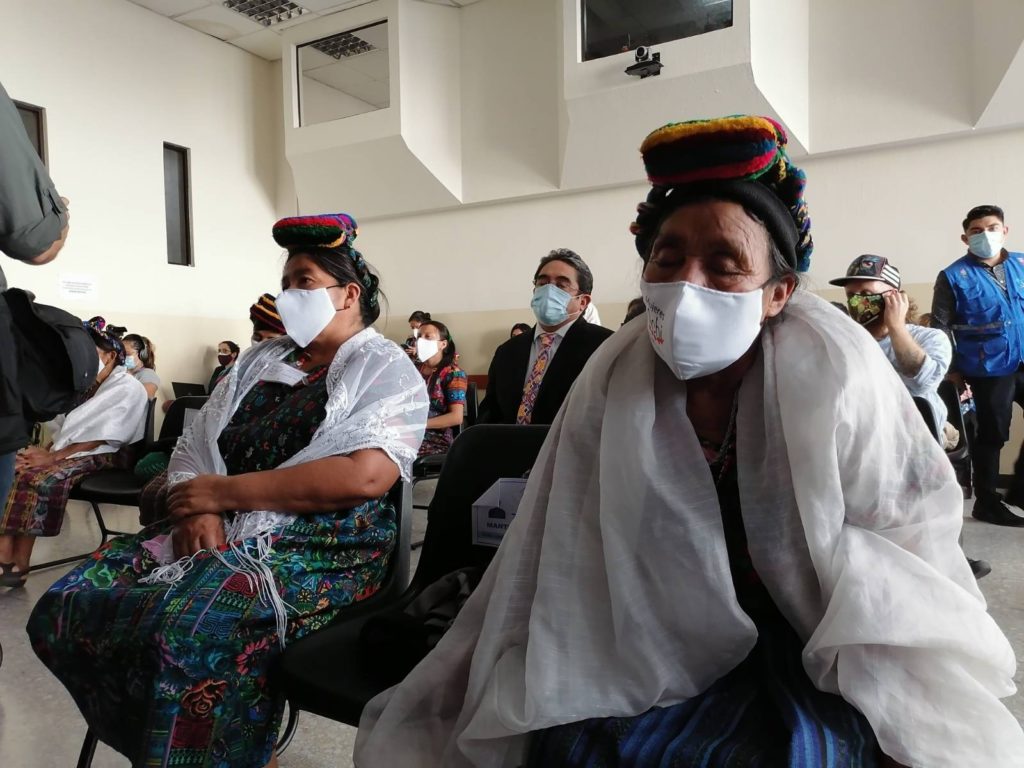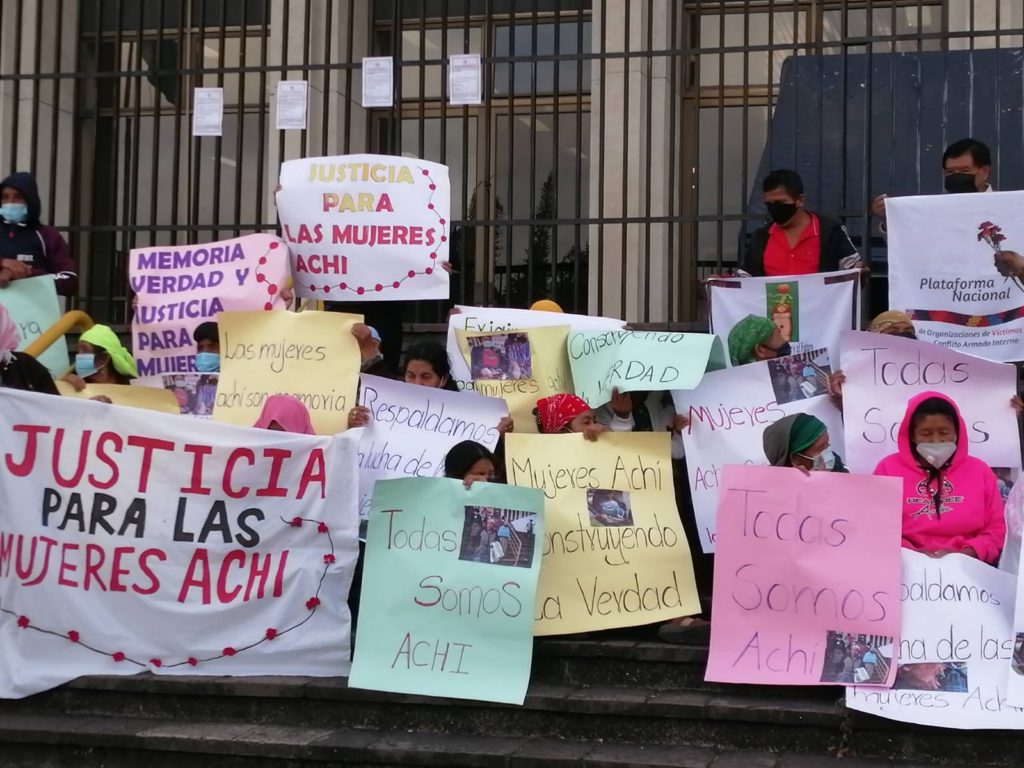This article was published more than 3 years ago.
On January 24, 2022, Guatemala’s highest court convicted five men for the wartime rape of 36 Indigenous Maya Achi women in the early 1980s. Each man was sentenced to 30 years in prison—the maximum sentence for crimes against humanity. The victory has made headlines around the world.
Led by a team of three Indigenous women lawyers, this landmark win is the result of four decades of community-led efforts to secure justice, the persistence of the survivors, and 11 years of support from the Asociación Bufete Jurídico Popular de Rabinal (the Law Association of Rabinal, or ABJP) and the Fund.
In Guatemala, where corrupt officials have undermined the justice system for years, this verdict is particularly powerful. It demonstrates the necessity of a holistic approach to justice like that employed by the ABJP and supported by the Fund.

Maya Achi women wait in court ahead of the verdict. Photo courtesy of Verdad Y Justicia en Guatemala.
About the Case
The crimes occurred during the early 1980s, the height of Guatemala’s civil war, in the town of Rabinal. The five men were members of a paramilitary group called the Civil Self-Defense Patrols. It wasn’t uncommon for the military to weaponize sexual violence against Indigenous women during the decades-long conflict. Of over 200,000 people who were killed or disappeared during the conflict, more than 80 percent of identified victims were Indigenous Maya, like the women.
The terror, stigma, and physical effects experienced by the women—the youngest of whom was only 12—were only compounded by the lack of public outrage, accountability, or justice. Several of the men continued to live freely in the same communities as their victims. And when the women began mobilizing to bring the perpetrators to justice, they endured both discrimination and indifference from authorities and the courts.

Supporters of the women plaintiffs outside the court. Photo courtesy of Verdad Y Justicia en Guatemala.
Four Decades of Pursuing Justice
As the women fought for their day in court, the ABJP stood by their side through years of hearings, appeals, and trials. Two of their three lawyers came from the ABJP. The group provided free psychological support and security. And they launched communications campaigns to ensure the case remained high profile and to rally public support behind the women.
The Fund has proudly championed the 36 women’s struggle since the ABJP took on the case in 2011. Our commitment to long-term, flexible support reflects the time that cases often take to progress and the need to adapt legal and other strategies along the way. Our funding also helped the ABJP promote the women’s well-being and the safety of those who assisted them.
This not the end of the women’s journey. The ABJP will continue working to ensure that the court’s decision is realized and to advocate for appropriate reparations for the women. Next, the group is preparing for a second phase of the case—one that would hold former officers of the Guatemalan military accountable for orchestrating this and other war crimes in another landmark trial.


